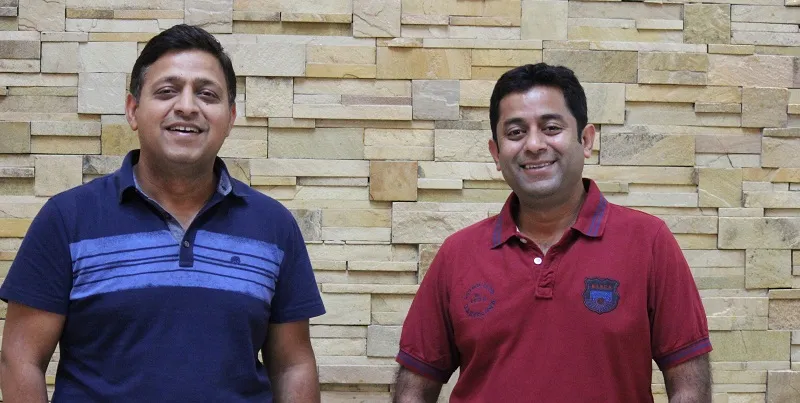[Startup of the day] Two geeky engineers from the USA make money by helping fleet operators
In May 2014 Manish Mittal was in India on holiday, and had booked a cab to ferry his family across Rajasthan. But the holiday turned out to be like one of those Hollywood movies that portray an India where the tourist has to "be ready for surprises" at every turn. That's exactly what happened to Glydel co-founder Manish.
"I booked a particular class of car and the tour operator books something else that breaks down during the trip," Manish recalls, adding that it turned out to be an annoying experience. Upon calling the tour operator, Manish figured out that it was not his fault and the problem lay in the ecosystem, which lacked tracking and ways to communicate with stakeholders. Back at the hotel room Manish began to jot down how the inter-city tourist cab operators business worked. "It is a system of systems operating on trust or just word of honour. There are several cultural nuances to Indian business too that I had to take into account," says Manish.
He realised that all that the system needed was technology that could bring transparency in business and delivers customer service in the process of making money for the operators. Remember RedBus, whose founders went to bus operators with a similar pitch back in 2008?

Manish flew back to the US and discussed this idea with his fellow engineering colleague, Arun Goel, who immediately saw potential in technology that made the unorganised organised. The duo were working as engineers at a global networking corporate business for over a decade. They then began to make multiple trips to India to understand the market across the country. By early 2015, both quit their jobs and started building Glydel, an ERP, CRM app and analytics platform for the inter-city car operator. There is also an Internet of Things (IoT) platform that helps the operator track the driver and also the health of the car. The platform also offers a consumer app for security and very soon the company will open up the app for inter-city travel.
According to the Indian Brand Equity Foundation the market for inter-city travel is as big as Rs 67,000 crore.
By mid-2015, Glydel was born. Manish flew back to India to set up the company and started building relationships in the ecosystem in Bengaluru. Arun stayed back in the USA to build a technology stack. "The technology is robust and easy to use. Being web-based the operators do not have to invest in any software," Arun explains.
Competition and revenues
There are only three competitors—AHA Cabs, HippoCabs and Yatayat—who have raised seed money of $100,000. While most of these companies focus on the consumer Glydel went after the taxi operator first and aggregated over 100 operators. Of these, they have 25 large operators that have more than 100 cars and the company is currently operating exclusively in Bengaluru. The revenue has just kicked in this year and the founders do not want to reveal it as yet.
Experts opine scale is crucial to the growth of companies like Glydel. "These businesses need to scale fast. If the operator sees value he will stick to such businesses," says R Natarajan, CFO of Helion Ventures.
Swamy, an operator who manages a fleet of 50 cars for inter-city travel, for clients in Indranagar, uses the Glydel platform to track his drivers. "I am able to track the supply of my cars and also the service delivered by my drivers," Swamy explains. The payment settlements are managed by the platform too: the customer can pay the cab operator on his website, and in turn it integrates the operator's entire ecosystem of hotels and contacts in smaller towns. Swamy reveals that this is a pay-as-you-go-model where Glydel gets a percentage on the transaction that is closed with the customer. It allows people like Swamy to market their company, manage payrolls and finance.
This intercity market is unexplored because 95 percent of it is still dominated by large operators who have tie-ups with the entire tourism chain. While Ola has been experimenting with inter-city travel, nobody has looked at a platform from the operator's standpoint. The tourism industry links multiple operators (hotels, taxis, sights organisers) and is very much like the mom-and-pop grocery retail industry. Glydel wants to work with this unorganised industry and scale up by word of mouth. For now it has the right ingredients to become a very successful startup because the service can be used by any retailer or operator wanting to organise his supply chain.


![[Startup of the day] Two geeky engineers from the USA make money by helping fleet operators](https://images.yourstory.com/cs/wordpress/2016/09/Manish-Arun-Yourstory.jpg?mode=crop&crop=faces&ar=16%3A9&format=auto&w=1920&q=75)




